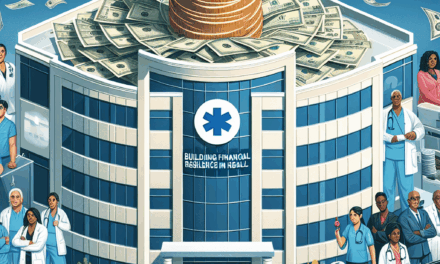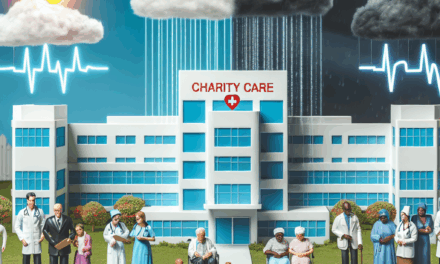Medical Organizations and Expectant Physician File Lawsuit Against RFK Jr. Over Vaccine Modifications
The ongoing debate surrounding vaccines has intensified in recent years, particularly with the rise of misinformation and the influence of public figures. One of the most notable figures in this discourse is Robert F. Kennedy Jr. (RFK Jr.), an environmental attorney and vaccine skeptic. His controversial views on vaccines have led to significant backlash from the medical community, culminating in a lawsuit filed by various medical organizations and expectant physicians. This article delves into the details of the lawsuit, the implications of RFK Jr.’s statements, and the broader context of vaccine hesitancy in society.
Understanding the Lawsuit Against RFK Jr.
The lawsuit against RFK Jr. is a significant legal action that highlights the tensions between public health advocates and vaccine skeptics. Filed by a coalition of medical organizations and expectant physicians, the lawsuit alleges that RFK Jr. has disseminated false information regarding vaccine safety and efficacy, particularly concerning modifications to vaccines that he claims could be harmful.
At the heart of the lawsuit is the assertion that RFK Jr.’s statements have contributed to vaccine hesitancy, which poses a public health risk. The plaintiffs argue that misinformation can lead to lower vaccination rates, resulting in outbreaks of preventable diseases. The lawsuit seeks to hold RFK Jr. accountable for the potential consequences of his statements, which they claim are not supported by scientific evidence.
The Legal Grounds for the Lawsuit
The legal basis for the lawsuit primarily revolves around defamation and the spread of misinformation. The plaintiffs argue that RFK Jr.’s claims about vaccines are not only false but also damaging to public health. They contend that his statements have led to a decline in vaccination rates, which can result in outbreaks of diseases such as measles and whooping cough.
In legal terms, defamation involves making false statements that harm an individual’s or organization’s reputation. In this case, the medical organizations argue that RFK Jr.’s statements have harmed the reputation of vaccines and the medical community as a whole. They seek damages for the impact of his misinformation on public health and safety.
Implications for Public Health
The implications of this lawsuit extend beyond the courtroom. The rise of vaccine hesitancy has been linked to increased outbreaks of vaccine-preventable diseases. According to the Centers for Disease Control and Prevention (CDC), the United States experienced a significant increase in measles cases in 2019, with over 1,200 reported cases, the highest number since 1992. This resurgence has been attributed, in part, to declining vaccination rates fueled by misinformation.
The lawsuit against RFK Jr. serves as a critical reminder of the importance of accurate information in public health. Medical organizations argue that combating misinformation is essential to maintaining high vaccination rates and protecting vulnerable populations, such as infants and individuals with compromised immune systems.
RFK Jr.’s Response and Public Reaction
In response to the lawsuit, RFK Jr. has maintained his stance on vaccines, asserting that he is advocating for informed consent and transparency in vaccine safety. He argues that his views are based on legitimate concerns about vaccine ingredients and potential side effects. His supporters claim that the lawsuit is an attempt to silence dissenting voices in the vaccine debate.
The public reaction to the lawsuit has been mixed. While many in the medical community support the legal action as a necessary step to combat misinformation, others view it as an infringement on free speech. This division reflects the broader societal debate over vaccine safety and the role of public figures in shaping public opinion.
Case Studies of Vaccine Hesitancy
To understand the impact of misinformation on vaccine hesitancy, it is essential to examine case studies from various regions. For instance, in 2015, an outbreak of measles at Disneyland in California was linked to unvaccinated individuals. This outbreak highlighted the consequences of declining vaccination rates and the role of misinformation in fueling vaccine hesitancy.
Another notable case is the resurgence of whooping cough in the United States. According to the CDC, there were over 15,000 reported cases of whooping cough in 2012, the highest number in over 50 years. Public health officials attributed this increase to a decline in vaccination rates, driven in part by misinformation about vaccine safety.
The Role of Medical Organizations in Promoting Vaccine Safety
Medical organizations play a crucial role in promoting vaccine safety and combating misinformation. They are responsible for disseminating accurate information about vaccines, conducting research, and advocating for public health policies that support vaccination efforts.
Advocacy and Education Efforts
Medical organizations, such as the American Academy of Pediatrics (AAP) and the American Medical Association (AMA), have launched various advocacy and education initiatives to promote vaccine safety. These efforts include:
- Public awareness campaigns that highlight the importance of vaccination.
- Educational resources for healthcare providers to help them address vaccine hesitancy among patients.
- Collaboration with community organizations to reach underserved populations and improve vaccination rates.
These initiatives aim to provide accurate information about vaccines and counteract the misinformation spread by vaccine skeptics like RFK Jr. By fostering trust in vaccines, medical organizations hope to increase vaccination rates and protect public health.
Research and Evidence-Based Guidelines
Medical organizations also conduct research to evaluate vaccine safety and efficacy. This research is critical for developing evidence-based guidelines that inform vaccination practices. For example, the CDC and the World Health Organization (WHO) regularly review vaccine safety data and update their recommendations based on the latest scientific evidence.
These guidelines are essential for healthcare providers, as they help ensure that patients receive safe and effective vaccines. By relying on rigorous research, medical organizations can counter misinformation and provide patients with the information they need to make informed decisions about vaccination.
Collaboration with Public Health Agencies
Collaboration between medical organizations and public health agencies is vital for promoting vaccination efforts. By working together, these entities can develop comprehensive strategies to address vaccine hesitancy and improve vaccination rates. For instance, during the COVID-19 pandemic, medical organizations collaborated with public health agencies to promote vaccine uptake through targeted messaging and outreach efforts.
This collaboration is essential for addressing the challenges posed by misinformation and ensuring that accurate information reaches the public. By presenting a united front, medical organizations and public health agencies can effectively combat vaccine hesitancy and protect public health.
Addressing Misinformation in the Digital Age
The rise of social media has significantly impacted the spread of misinformation about vaccines. Medical organizations are increasingly recognizing the need to engage with digital platforms to counteract false narratives. Strategies include:
- Utilizing social media to share accurate information about vaccines and address common misconceptions.
- Collaborating with influencers and trusted figures to amplify pro-vaccine messages.
- Monitoring online discussions to identify and address misinformation in real-time.
By leveraging digital platforms, medical organizations can reach a broader audience and combat misinformation more effectively. This approach is crucial in an era where misinformation can spread rapidly and influence public opinion.
Case Studies of Successful Vaccine Advocacy
Several case studies illustrate the effectiveness of vaccine advocacy efforts by medical organizations. For example, the “Vaccines Work” campaign launched by the CDC aimed to increase public awareness of vaccine safety and efficacy. The campaign utilized various media channels to reach diverse audiences and successfully increased vaccination rates in targeted communities.
Another example is the “Immunization Partnership,” a coalition of healthcare providers, public health officials, and community organizations in Texas. This initiative focused on improving vaccination rates among underserved populations through education and outreach efforts. As a result, the coalition saw a significant increase in vaccination rates in the communities they served.
The Impact of Vaccine Misinformation on Public Health
The impact of vaccine misinformation on public health is profound and far-reaching. As vaccine hesitancy grows, the consequences can be dire, leading to outbreaks of preventable diseases and increased healthcare costs.
Outbreaks of Vaccine-Preventable Diseases
One of the most significant consequences of vaccine misinformation is the resurgence of vaccine-preventable diseases. The CDC reported that in 2019, the United States experienced the highest number of measles cases in nearly three decades, with over 1,200 confirmed cases. This outbreak was largely attributed to declining vaccination rates fueled by misinformation.
Similarly, the resurgence of whooping cough has been linked to vaccine hesitancy. According to the CDC, there were over 15,000 reported cases of whooping cough in 2012, the highest number in over 50 years. Public health officials have warned that continued vaccine hesitancy could lead to further outbreaks of diseases that were once under control.
Healthcare Costs and Economic Impact
The economic impact of vaccine-preventable disease outbreaks can be substantial. Increased healthcare costs associated with treating outbreaks can strain public health resources and lead to higher insurance premiums for individuals. A study published in the journal “Health Affairs” estimated that the economic burden of vaccine-preventable diseases in the United States exceeds $7 billion annually.
Moreover, outbreaks can lead to lost productivity as individuals take time off work to recover from illness or care for sick family members. The economic implications of vaccine hesitancy extend beyond healthcare costs, affecting businesses and communities as well.
Vulnerable Populations at Risk
Vaccine hesitancy disproportionately affects vulnerable populations, including infants, the elderly, and individuals with compromised immune systems. These groups are at a higher risk of severe illness from vaccine-preventable diseases and rely on herd immunity to protect them from outbreaks.
When vaccination rates decline, herd immunity is compromised, putting these vulnerable populations at greater risk. Public health officials emphasize the importance of maintaining high vaccination rates to protect those who cannot be vaccinated due to medical reasons.
The Role of Education in Combating Misinformation
Education is a critical tool in combating vaccine misinformation. By providing accurate information about vaccines and addressing common misconceptions, healthcare providers can help alleviate concerns and build trust in vaccination. Educational initiatives should focus on:
- Providing clear and accessible information about vaccine safety and efficacy.
- Addressing specific concerns raised by patients and their families.
- Encouraging open dialogue between healthcare providers and patients.
By fostering a culture of informed decision-making, healthcare providers can help combat vaccine hesitancy and promote public health.
Case Studies of Successful Education Initiatives
Several education initiatives have successfully increased vaccination rates and countered misinformation. For example, the “Shots for Tots” program in Michigan aimed to improve vaccination rates among young children through community outreach and education. The program successfully increased vaccination rates in targeted communities by providing parents with accurate information about vaccines.
Another example is the “Vaccinate Your Family” campaign, which focuses on educating families about the importance of vaccination across the lifespan. This initiative has successfully raised awareness about vaccine safety and efficacy, leading to increased vaccination rates in various populations.
The Future of Vaccine Advocacy and Public Health
The future of vaccine advocacy and public health will depend on the ability of medical organizations, public health officials, and healthcare providers to combat misinformation and promote accurate information about vaccines. As the landscape of vaccine hesitancy continues to evolve, several key strategies will be essential for success.
Strengthening Collaboration Among Stakeholders
Collaboration among stakeholders is crucial for addressing vaccine hesitancy effectively. Medical organizations, public health agencies, healthcare providers, and community organizations must work together to develop comprehensive strategies that promote vaccination and counter misinformation. This collaboration can take various forms, including:
- Joint public awareness campaigns that leverage the strengths of each organization.
- Shared resources and educational materials to ensure consistent messaging.
- Collaborative research efforts to evaluate the effectiveness of vaccination initiatives.
By strengthening collaboration, stakeholders can create a unified approach to vaccine advocacy that resonates with diverse audiences.
Utilizing Technology and Social Media
As misinformation spreads rapidly through digital platforms, leveraging technology and social media will be essential for promoting accurate information about vaccines. Strategies may include:
- Creating engaging content that addresses common misconceptions about vaccines.
- Utilizing social media influencers to amplify pro-vaccine messages.
- Monitoring online discussions to identify and address misinformation in real-time.
By harnessing the power of technology, advocates can reach a broader audience and counter misinformation more effectively.
Fostering Trust in Healthcare Providers
Building trust between healthcare providers and patients is critical for addressing vaccine hesitancy. Healthcare providers play a vital role in influencing patients’ decisions about vaccination. Strategies to foster trust may include:
- Encouraging open dialogue about vaccine concerns and addressing questions directly.
- Providing personalized recommendations based on patients’ health histories and concerns.
- Demonstrating transparency about vaccine safety and efficacy through evidence-based information.
By fostering trust, healthcare providers can help alleviate concerns and encourage patients to make informed decisions about vaccination.
Continued Research and Evaluation
Ongoing research and evaluation are essential for understanding the factors that contribute to vaccine hesitancy and developing effective strategies to address it. Medical organizations and public health agencies should prioritize research efforts that focus on:
- Identifying the sources of vaccine misinformation and their impact on public perception.
- Evaluating the effectiveness of educational initiatives and public awareness campaigns.
- Understanding the barriers to vaccination in specific populations and developing targeted interventions.
By prioritizing research, stakeholders can develop evidence-based strategies that effectively address vaccine hesitancy and promote public health.
Conclusion: The Path Forward for Vaccine Advocacy
The lawsuit against RFK Jr. represents a critical moment in the ongoing battle against vaccine misinformation. As medical organizations and expectant physicians seek to hold him accountable for his statements, the broader implications for public health cannot be overlooked. Vaccine hesitancy poses a significant threat to community health, leading to outbreaks of preventable diseases and increased healthcare costs.
To combat this challenge, stakeholders must work collaboratively to promote accurate information about vaccines, foster trust between healthcare providers and patients, and leverage technology to reach diverse audiences. Education will play a vital role in addressing concerns and dispelling myths surrounding vaccines.
As we move forward, it is essential to recognize the importance of informed decision-making in public health. By prioritizing vaccine advocacy and addressing misinformation, we can protect vulnerable populations and ensure a healthier future for all.




